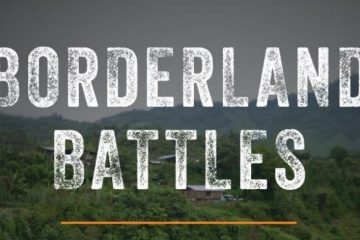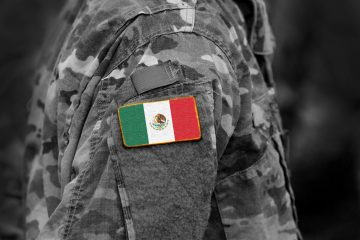
OxPol Blogcast. Women in Politics – Formal and Informal Politics of Women’s Representation and Activism in Latin America
OxPol Blogcast showcases research, analysis, insights, and experiences from the members of the University of Oxford’s Department of Politics and International Relations (DPIR), and specialist guests from the Oxford academic community and beyond. On this episode, we are focusing on the state of women’s descriptive and symbolic representation in party and civil society politics across Latin American countries. OxPol Blogcast host Anastasia Bektimirova welcomes three guests to bring you the stories of women’s agency at different levels of political participation in the region. The guests are sharing their expert view on the social environment, political culture, policies as well as written and unwritten rules that are shaping women’s progress and experiences in pursuing elected office, and engaging politically from civil society. With Dr. Malu Gatto, an Associate …

OxPol Blogcast. Women in Politics – Violence Against Women in Political and Public Life
OxPol Blogcast showcases research, analysis, insights, and experiences from the members of the University of Oxford’s Department of Politics and International Relations (DPIR), and specialist guests from the Oxford academic community and beyond. On this episode, we discuss how gender-based violence, one of the most devastating human rights issues of our time, manifests itself in political and public life. OxPol Blogcast host Anastasia Bektimirova welcomes four guests to unpack the issue of violence against women, the many forms it can take, how the experiences vary between serving politicians and candidates, men and women, and the activities, initiatives and mechanisms that are in place to combat it and help those who have become victims. With Reem Alsalem, the United Nations Special Rapporteur on violence against women, its causes and …
Italy’s Other Wave: Protests during the Second Lockdown
Italy was the first Western democracy to impose a country-wide lockdown in response to the COVID-19 pandemic. Despite successfully curbing the number of infections in the first half of 2020, Italy saw its cases increase again in October, prompting Prime Minister Giuseppe Conte and local governments to announce new restrictions to curb the cresting second wave. Despite the clear memory of the significant death toll and warnings of the dangerous winter to come, however, these announcements have been met with opposition. On the evening of the 23rd October, thousands gathered in the streets of Naples to protest against the forced closure of shops and restaurants and the threat of a local lockdown. A group of about 300 people—including youth, extremist political groups, and football hooligans—escalated into a violent protest, attacking police officers, burning cars, and vandalizing private …
Elections and the Politics of Fear in Uganda: The End of Post-Liberation Politics?
Zbigniew Brzezinski noted that the politics of fear is an efficient means of control because it “obscures reason and intensifies emotions.” After more than 34 years in power, President Museveni of Uganda—who toppled Milton Obote’s regime in 1986 after years in the bush with the National Resistance Movement (NRM)—understood the politics of fear better than anyone else. If one still had doubts, the death of around 40 people in Kampala at a political rally organized by Bobi Wine, Museveni’s main opponent, in November came to confirm one thing: it is election season in Uganda. On 14 January 2021, Ugandans will go to the polls. Museveni will most likely win re-election, after having scrapped the presidential term and age limits in 2005 and 2017 respectively. However, this piece argues that the intense politics of fear used by his regime can be interpreted as the possible end of post-liberation politics in Uganda. Post-liberation …
Internet Suppression and Violence in Uganda: Implications for the 2021 Elections
In 2016, Uganda’s Presidential election was met with a surge in violence. More than 20 people reportedly died and even more were threatened and beaten in the lead-up to the election. Current Ugandan President Yoweri Museveni, who has ruled the country since 1986, captured another term in office through a strategy that relied on intimidation tactics. Voters throughout the country were told that their regions would not receive aid support if they did not vote for Museveni, leading EU and U.S. election monitors to deem that there was “an atmosphere of intimidation” that was “deeply inconsistent with international standards.” In the lead-up to next year’s election, there are again fears of an illegitimate democratic process. Namely, increasing internet suppression may mar the outcome of the …
Hong Kong: Have Protester Demographics Changed Following Escalating Violence?
As protests in Hong Kong have become more violent, have the demographics of the protesters changed? Political scientists have argued that a shift toward more violent protest action can alienate moderate protesters. Moderates, in this definition, are those who may share common cause with radicals (or those who embrace violent tactics) but reject those tactics. Once alienated, such moderate protesters tend to withdraw their support from a movement and may refrain from participating in protest action in the future. Hong Kong’s protests seem to have defied this trend. My surveys of protest participants find that the demographic profile of protesters has remained relatively constant even as violence has escalated in the demonstrations. Certain types of protesters who might be expected …

Borderland Battles: Violence, Crime and Governance at the Edges of Colombia’s War
Anette Idler summarizes some of the findings from her new book Borderland Battles, which reveals how violent non-state groups compete for territorial control, co-operate in illicit cross-border activities and replace the state in exerting governance functions in borderlands. Borderlands are like a magnifying glass on some of the most entrenched security challenges of the world. In unstable regions, border areas attract violent non-state groups ranging from rebels and paramilitaries to criminal organisations who exploit their neglect by central governments. These groups compete for territorial control, cooperate in illicit cross-border activities, and substitute for the governance functions usually associated with the state. Studying the Colombian borderlands where armed conflict and organised crime converge demonstrates that the gap between state-centric views on …

AMLO’s National Guard: More of the Same?
Mexico’s new national guard has been in the news recently because it plays a critical role stemming the flow of Central American migrants. However, it remains “a work in progress,” and has been the subject of severe criticism since its inception. Despite making promises to demilitarize Mexico during his campaign, President Andrés Manuel López Obrador is going forward with continuing to rely on militarized public security under a different name. The Plan Nacional de Paz y Seguridad 2018-2024 – his plan to bring about ‘peace and security,’ entails the creation of a Guardia Nacional (national guard). Of course, improving public security is of vital importance, because the security situation in Mexico is dire: Last year set a new record for …









